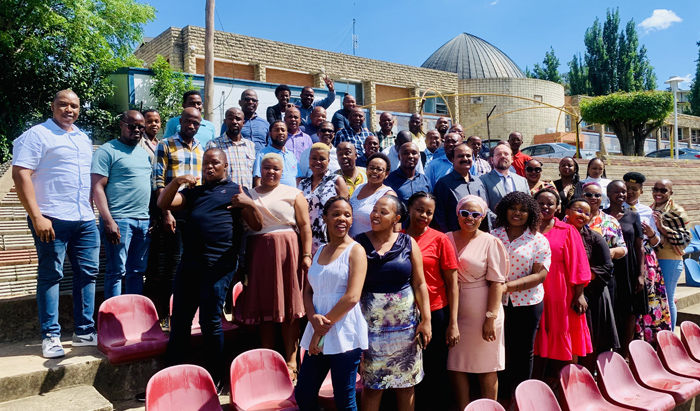
Open Source is reshaping the digital future of Kenya and Trinidad and Tobago

Open-source innovations are shaping the future of accessible digital transformation, for example through AI open-source modes and digital public goods.
The Open Source Ecosystem Enabler (OSEE) project – a collaborative effort between the Telecommunication Development Bureau (BDT) of the International Telecommunication Union (ITU) and the United Nations Development Programme (UNDP) with support from the European Union (EU) which was officially announced in February 2024 – aims to empower countries to unlock the full potential of open source technologies. One of the ways that this is achieved is through the establishment of local and inclusive Open Source Programme Offices (OSPOs).
After an extensive review, Kenya as well as Trinidad and Tobago were selected as the two pilot countries to receive two years of support to implement a national OSPO.
BDT is providing support to Kenya. Together with the Ministry of ICT and Digital Economy, the OSPO will help leverage open-source technologies for public service delivery.
The Kenyan OSPO will serve as a central hub for coordinating open-source adoption across government, industry, and academia, acting as a catalyst for innovation, fostering public-private collaboration, capacity building, and constructing resilient, future-proof Digital Public Infrastructures (DPI) and Digital Public Goods (DPGs). This will include alignment with other Open Source communities such as GovStack, which will deliver digital service demonstrations and training activities.
Looking ahead, OSEE will support the development of the Kenyan OSPO’s structure, capacity-building programs, and help scale Open Source adoption across sectors.
In Trinidad and Tobago, under the guidance of UNDP, strategic planning efforts with the country’s Ministry of Digital Transformation are being supported by partnerships including the University of the West Indies.
Similarly, the OSPO in Trinidad and Tobago will promote access to open source software, deliver training on Open Source governance and utilise best practices to build capacity through collaborative tech communities. These activities will catalyse inclusive and sustainable digital public services.
This is an ITU Development #DigitalImpactUnlocked story
About the project
Project number: 9GLO23129
Project title: Open-source Ecosystem Enablement for Public Services Innovation
Description: Digital Public Goods (DPGs) offer tremendous opportunities, including the potential to contribute to the achievement of the Sustainable Development Goals (SDGs). Defined in the UN Secretary General’s roadmap on digital cooperation, DPGs are open-source software, open data, open AI models, open standards, and open content that adhere to privacy and other applicable laws and best practices, do no harm by design, and help attain the SDGs. As open-source software, DPGs can be re-used because its design or “source code” is made publicly accessible.
The EU aligns with the foreseeable benefits of developing and implementing Digital Public Goods / Digital Public Infrastructure in the context of eliminating the digital divide, as part of the EU’s digital policy and the Global Gateway. The EU promotes a values-based human-centric digital transformation through the multilateral system, whilst supporting the EU’s vision of multistakeholderism. In this context, the development of local digital eGovernance ecosystems and networks for open-source software fits in an objective of enhancing local digital capacity and strengthening digital citizenship.
Many governments are still reluctant to implement open-source solutions due to resource limitations, knowledge gaps, uncertainties around cost, and the lack of local and global ecosystems. This Action aims to work on understanding and developing those ecosystems. Eco-systems require support to thrive and scale. Through the shared work of UNDP and ITU the barriers to a stronger DPG ecosystem are well understood. The project is a joint programme implemented in partnership with UNDP, who implements 50% of the activities in the project.
Visit the project page for more details.

